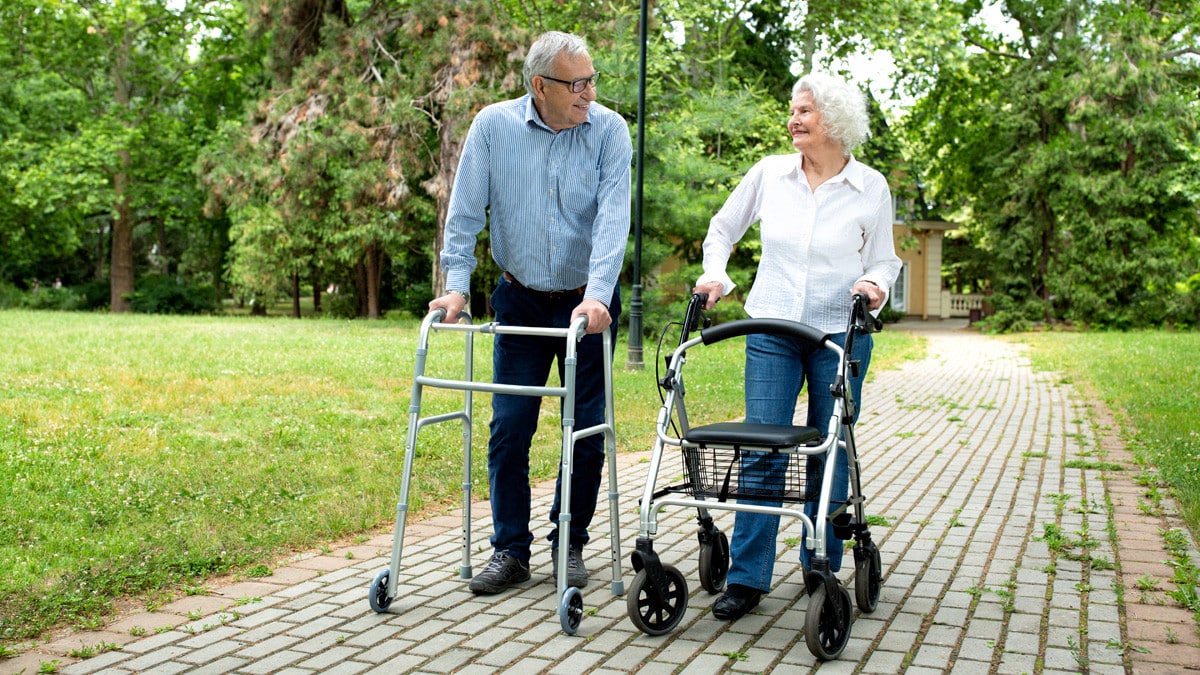With the onset of the golden years, taking charge of one’s health becomes an essential preoccupation. While aging is inevitable, the journey into the sunset years can be made healthier, stronger, and more carefree through preventive care. The secret to achieving this lies in proactive initiatives such as understanding pivotal health screenings, embedding regular exercise into daily routines, and earnestly embracing healthy eating habits. This not only paves the way for improved longevity but also enhances everyday experiences, increasing the quality of life. The goal of this passage is to demystify the beneficial practices that encompass Understanding Important Health Screenings, the Importance of Regular Exercise, and Healthy Diet and Nutrition for seniors.
Understanding Important Health Screenings
Essential Health Screenings for Our Beloved Seniors: A Must Read for Family Caregivers!
Growing old is truly a blessing. We’ve all heard the saying that “age is just a number,” but as those numbers increase, ensuring that our seniors maintain optimal health becomes of paramount importance. Happily, routine health screenings play an essential role in this process by identifying potential health concerns before they become detrimental. Understandably, navigating healthcare can initially seem daunting, but rest assured – recognizing these key health screenings can help make all the difference.
First on the list is the Heart Disease Screening. Heart disease is considered a leading cause of death among seniors. Preventive tests such as blood pressure checks, cholesterol level tests, and electrocardiograms are often recommended. Remember, a healthy heart forms the essence of a vibrant life.
Next, a Diabetes Screening is a must for our elderly loved ones. Diabetes has a knack for sneaking up on even the healthiest of us, particularly if the individual is overweight or has a familial history of the disease. Simple blood glucose tests can help catch any abnormalities early on.
Cancer Screenings also play a significant role in senior health checks. The type of screenings will likely depend on age, sex, and family history. For instance, men may require visual prostate exams, while mammograms might be suggested for women. Meanwhile, seniors of both sexes should consider regular screenings for colorectal cancer.
Bone Density Test for osteoporosis should also be on the watchlist. It may come as a surprise, but our bones can weaken with age, making them more susceptible to fractures. This test helps gauge bone strength and offers intervention strategies if needed.
Let’s not forget the eyes and ears – those precious windows and doorways to the world! Regular Vision and Hearing Screenings become vital as our seniors age. Cataracts, glaucoma, macular degeneration, and hearing loss are more common in seniors and can significantly impact quality of life if not addressed promptly.
Lastly, routine Mental Health Screenings, often underestimated, are crucial. Depression, anxiety, and cognitive impairments like dementia can surface in seniors, and early detection can lead to more effective treatment strategies.
Let’s bear in mind that these screenings are general recommendations. Each senior’s healthcare journey is as unique as they are, and doctors may suggest additional screenings based on individual health histories and lifestyle factors. Remember, preventative care is the best care, and has a wonderful way of adding life to years, not just years to life. So, let’s advocate for our beloved seniors by embracing routine health screenings – after all, it’s all about prioritizing their well-being. Let’s unite in ensuring that our golden generation enjoys the quality of life they richly deserve!

Importance of Regular Exercise
The Vitality of Regular Exercise for Seniors
While it’s true the health check-ups and screenings listed above are crucial to maintain overall health, regular exercises should not be overlooked as they have a sea of associated benefits. Much like keeping your mind sharp, engaging in physical activities plays an essential role in ensuring a sense of independence and longevity among seniors.
Firstly, let’s discuss a matter that often concerns seniors: joint and muscle health. Regular exercise can improve both! Moderate exercises, such as brisk walking or swimming, can strengthen muscles and increase joint flexibility, helping to mitigate common age-related issues like arthritis or muscle stiffness.
Moreover, it’s no secret that as our beloved ones age, their balance might falter, leading to an increased risk of falls. However, physical exercises like Tai Chi or coupling walking with light weight lifting can improve stability, coordination, and balance, crucial in preventing falls and injuries.
Now, let’s turn to a subject that might not immediately come to mind: the significant role exercise plays in enhancing mental well-being among senior citizens. Scientific studies suggest a clear link between regular exercise and improved mental health. This is due to physical activity’s ability to reduce feelings of depression, anxiety, and improve cognitive functions.
Another phenomenal benefit is the positive effects of exercise on blood pressure. Cardiovascular activities like swimming, cycling, or even regular walks can help to regulate blood pressure levels, hence fostering a healthier heart. Additionally, such physical activities can help to maintain a healthy weight, reducing the risk of developing other health issues.
Lastly, let us not overlook the social benefits. Group-oriented activities like yoga classes, walking clubs, or swimming sessions provide excellent opportunities for social interaction. These contexts promote a sense of community and belonging, effectively combating feelings of loneliness that some seniors may experience.
Keep in mind that it’s never too late to start. With the right guidance, seniors can kickstart or continue their fitness journey safely and enjoyably! For the seniors out there, remember, “old age” and “weakness” don’t have to be synonymous. So, pick up those shoes, enroll in that class, or simply take a brisk walk in the garden. Make physical activity part of your gold years and relish the positive impacts!
The unique blend of physical, mental, and social benefits underscores why regular exercises take an indispensable spot in a senior’s lifestyle. It’s not just about longevity but also about enhancing the quality of that long life. So, encourage our beloved seniors to maintain regular physical activities, and watch them live their golden years with strengthened vitality and brightened spirits!

Healthy Diet and Nutrition
A Comprehensive Guide to a Healthy Diet for Seniors
Eating healthy isn’t just about losing weight or fitting into a favorite pair of jeans; it’s about fueling our bodies with the necessary nutrients to function at optimal levels. As we age, our nutritional needs change, and a healthy diet for seniors focuses on a variety of factors that may be different from younger individuals.
A balanced diet is fundamental in the golden years. Opting for different types of fruits, vegetables, lean proteins, whole grains, and healthy fats will not only nourish the body but also help in managing chronic conditions like high cholesterol or hypertension. Include a rainbow of foods to ensure seniors receive lots of different nutrients.
Calcium and Vitamin D play significant roles for seniors as they protect from bone loss that accelerates as we age. Dairy products like milk, cheese, and yogurt are excellent sources of both nutrients. Another way to get Vitamin D is from the sun, so getting outside and soaking up some rays is also beneficial!
Don’t forget the important role of fiber in a senior’s diet. It aids in digestion, can help prevent heart disease by lowering cholesterol and can also help control blood sugar levels. Eating whole grains, fruits, and vegetables can help seniors meet their daily fiber requirements.
Hydration is another critical aspect of senior’s health. As we age, our sense of thirst may not be as sharp; hence, drinking plenty of fluids even if we don’t feel thirsty helps prevent dehydration. Water is always a great choice, but other options such as herbal teas, fruit-infused water, or clear broth soups are also excellent choices.
Portion control is a straightforward way for seniors to maintain a healthy weight and balance the variety of nutrients they need. It can be helpful to use smaller plates, bowls, and glasses to naturally adjust the portion sizes.
Coping with dental issues can be a challenge for seniors. Hence, it’s important to make meals enjoyable and comfortable. Soups, stews, or smoothies are easy on the teeth and can pack a nutritional punch.
Finally, remember, enjoyment of food doesn’t need to stop as we age. Treating seniors to their favorite meal or a dessert from time to time can bring joy and improve their overall well-being. Moderation is the key here.
Taking care of our elderly loved ones involves a well-rounded approach that encompasses not just regular health screening and fitness, but also prioritizing nutrition and hydration. Easy modifications to add nutrition and remove barriers can bring a massive change in their everyday life. The main goal is to keep our seniors as healthy and happy as possible!

Embracing a conscious journey towards senior healthcare requires a diligent commitment. The combination of regular health screenings, maintaining an active lifestyle, and eating well-balanced meals is the roadmap to enviable twilight years. Feeding one’s knowledge with health and wellness resources, linking that with appropriate action is the essence of this journey. Looking ahead, the real ‘fountain of youth’ is the blend of early detection, active living, and nourishing foods. So, let’s celebrate the golden years by being proactive, getting regular check-ups, staying active, and eating healthily, as they are instrumental in living a long, healthy, and fulfilling life.



